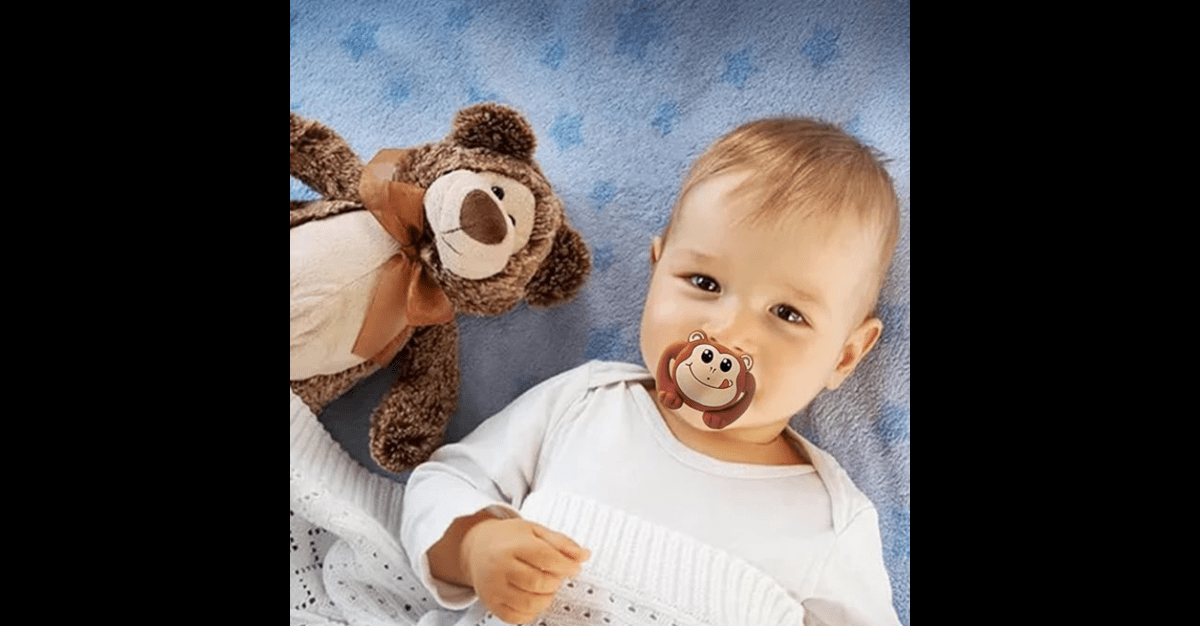The decision to use a pacifier, often referred to as a dummy, for your newborn can be a complex one, filled with a myriad of opinions and considerations. As a parent, you may find yourself questioning whether introducing a pacifier is a wise choice. In this blog post, we will explore the pros and cons of using a dummy for newborns, shedding light on the factors that can help you make an informed decision.
The Pros:
- Soothing Comfort: Pacifiers can provide a source of comfort and security for newborns. Sucking is a natural reflex that can help babies self-soothe, especially in stressful or unfamiliar situations.
- Reduced SIDS Risk: Some studies suggest that the use of pacifiers during sleep may be associated with a reduced risk of Sudden Infant Death Syndrome (SIDS). However, the mechanism behind this correlation is not fully understood.
- Easier Sleep Transition: Pacifiers can assist in the transition from wakefulness to sleep. The sucking action may help calm a fussy baby and encourage the onset of sleep.
- Pain Relief: Sucking on a pacifier may provide pain relief for babies, particularly during teething. The rhythmic motion of sucking can be soothing and distract from discomfort.
The Cons:
- Nipple Confusion: Introducing a pacifier too early, especially before breastfeeding is well-established, may lead to nipple confusion. Some babies may struggle to differentiate between the breast and the pacifier, impacting breastfeeding success.
- Dependency Concerns: Excessive use of pacifiers can lead to dependency. If a baby relies heavily on a pacifier for comfort, it may pose challenges for parents when trying to wean them off later.
- Dental Issues: Prolonged use of pacifiers, especially after the eruption of teeth, can contribute to dental problems such as misalignment. It’s essential to monitor the use of pacifiers as the baby grows.
- Infection Risk: Improper pacifier hygiene can increase the risk of infections. Regularly cleaning and inspecting pacifiers for signs of wear are crucial to ensure a safe and healthy experience.
Making an Informed Decision:
- Consider Individual Needs: Every baby is unique, and what works for one may not work for another. Consider your baby’s temperament, needs, and your own parenting philosophy when deciding whether to use a pacifier.
- Breastfeeding Status: If you are breastfeeding, it’s advisable to wait until breastfeeding is well-established before introducing a pacifier. This helps prevent nipple confusion and ensures a strong nursing bond.
- Monitor Usage: If you choose to use a pacifier, monitor its usage and be attentive to signs of dependency. It’s essential to strike a balance that provides comfort without impeding natural developmental milestones.
- Practice Safe Habits: Maintain proper pacifier hygiene by regularly cleaning it and ensuring it’s free from damage. Additionally, avoid coating the pacifier in substances like honey, as it poses a risk of botulism in infants.
In Conclusion:
The decision to use a dummy on your newborn is a personal one, influenced by a variety of factors. By weighing the potential benefits against the drawbacks and considering your baby’s individual needs, you can make an informed choice that aligns with your parenting philosophy.
The information found anywhere on this website, including but not limited to text, graphics, images and any other material therewith is for information purposes only. No material on this website is intended to be a substitute for professional personalised medical advice, diagnosis or treatment. By providing the information contained herein we are not diagnosing, treating, curing, mitigating or preventing any type of disease or medical condition. Always seek the advice from a registered health care professional if you have any questions regarding any medical concerns or conditions. Do not disregard professional medical advice or delay in seeking it because of something you have read on this website.

